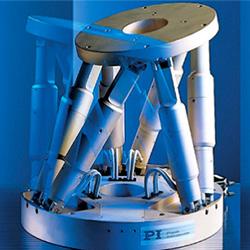How EUDR is Affecting the Global Supply Chain and Its Future
EUDR is transforming the European market but its ripples can be felt through out the globe. Will it be the change the supply chain need for the future?
The European Union Deforestation Regulation (EUDR) is a transformative piece of legislation aimed at halting global deforestation by imposing stringent compliance measures on businesses importing or exporting commodities associated with forest degradation. While its environmental impact is undisputed, the ripple effect on global supply chains is profound, influencing not only operational frameworks but also the future landscape of supply chain management.
1. Redefining Supply Chain Transparency
The EUDR mandates companies to prove that their supply chains are deforestation-free, requiring traceability of products from their origin to the point of sale. This demand for transparency pushes companies to map their entire supply chains, ensuring they comply with regulations that cover products like soy, palm oil, timber, coffee, and cattle. The implications are significant for global manufacturers and suppliers. Many supply chains, especially in regions where deforestation is prevalent, will face disruptions, either due to the complexity of tracking their products or the cost involved in ensuring compliance.
Soon, companies that invest in advanced traceability solutions like blockchain or digital certificates will be better positioned. These technologies can provide real-time data and secure tracking capabilities, which are essential in meeting the EUDR requirements.
Learn everything about EUDR and coffee export: https://blog.acviss.com/eudr-a-complete-guide-for-coffee-beans-exporters
2. Increased Costs and Compliance Burden
Compliance with the EUDR comes with financial and operational costs. Businesses must invest in data collection technologies, hire specialists, and reconfigure their supply chains to guarantee that raw materials sourced are in line with EUDR mandates. This could result in higher production costs, particularly for small and medium-sized enterprises (SMEs) that may not have the resources to implement such complex systems quickly.
The EUDR puts pressure on companies to conduct in-depth risk assessments of their suppliers. The cost of non-compliance is also substantial, as businesses risk hefty fines, product recalls, and potential bans from the EU market, which is one of the largest consumer bases in the world.
3. Risk Mitigation and Strategic Shifts
To mitigate risks, many businesses are shifting their sourcing strategies. Companies are prioritizing partnerships with suppliers that can provide clear evidence of sustainable practices, while others are exploring new sourcing regions where deforestation concerns are less pressing. This shift will lead to a reorganization of supply chains globally, favouring suppliers with robust sustainability credentials and driving demand for new markets.
Moreover, firms are increasingly adopting risk management frameworks that evaluate the environmental and social impact of their supply chains. Technologies such as AI and machine learning are being employed to assess supply chain risks, predict potential compliance failures, and take preemptive action to align with EUDR standards.
4. The Role of Technology in EUDR Compliance
Technology plays a critical role in ensuring EUDR compliance, with digital solutions offering the most promising avenue for companies to track, verify, and audit their supply chains. Blockchain, in particular, has emerged as a crucial tool, offering immutable records that verify a product's journey from its point of origin. Machine learning and AI can be leveraged to scan for potential deforestation risks by analyzing satellite imagery and other environmental data sources, enabling real-time monitoring.
For instance, traceability solutions, like Acviss's blockchain-powered Origin, can help companies stay compliant by offering transparency and accountability throughout the supply chain. These tools not only safeguard brand integrity but also assure consumers and regulators about the ethical sourcing of products.
Bring complete visibility into your supply chain with Origin: https://acviss.com/origin/
5. The Future of Global Supply Chains Under EUDR
As the EUDR continues to reshape the regulatory landscape, the future of global supply chains will see a heavier emphasis on sustainability, traceability, and accountability. Companies that adapt to these changes will thrive, while those that resist may find themselves increasingly marginalized in a market that places a premium on ethical practices.
In the coming years, EUDR compliance will become a benchmark for companies looking to operate in Europe, and other regions may follow suit with similar regulations. The widespread adoption of digital tracking systems, more eco-conscious consumers, and an overall shift towards sustainable business practices will dominate the global supply chain landscape.
Upholding Sustainability
The EUDR is more than just an environmental regulation—it is a catalyst for change across global supply chains. While the challenges of compliance are considerable, especially in terms of cost and operational restructuring, businesses that embrace this new reality will not only contribute to combating deforestation but also secure their future in an increasingly sustainability-focused world. The future of supply chains will undoubtedly be shaped by technology, transparency, and the drive toward responsible sourcing.
Get in touch with us for info on EUDR and supply chain traceability. Acviss has secured over 2 billion products and catered to 80+ brands globally. Get on a call with our experts to protect your supply chain and brand in the market. https://acviss.com
Featured Product

